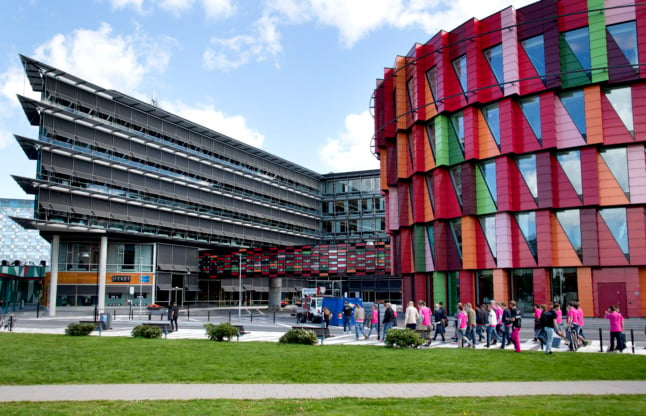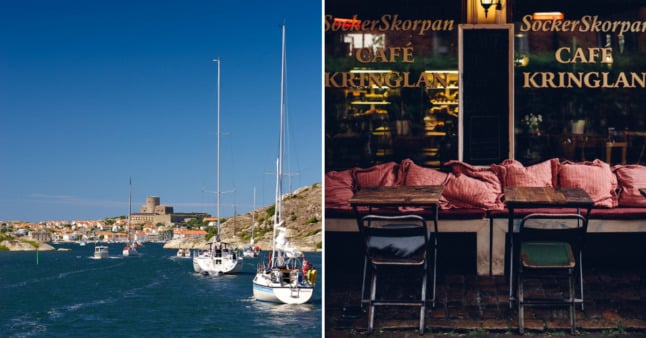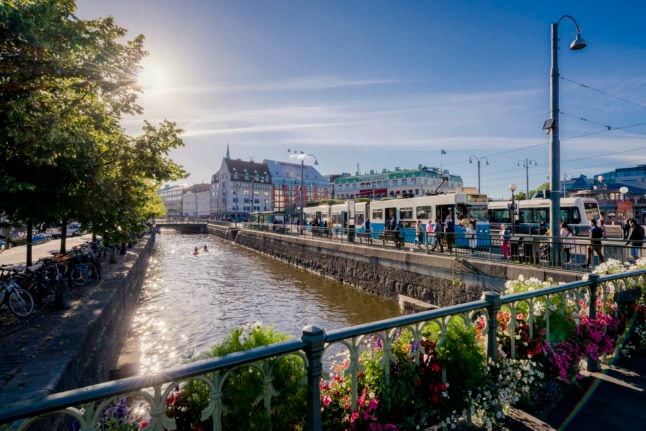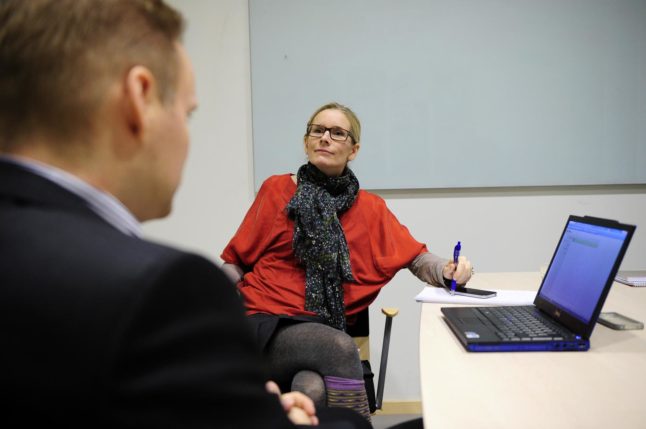By 2030, the city’s labour market area is expected to include 1.8 million residents, up from 1.4 million today. As the city celebrates turning 400, The Local takes a look at its rich industrial and cultural history and explores why Gothenburg is a thriving location for international workers, businesses and visitors today.
A business hub offering enjoyment and efficiency
“My meetings can start at 7.30 in the morning with a meeting with China and end at 5pm with a meeting with the US,” says Romana Fischer. “Just in my team, we have at least eight nationalities.”
German-born Romana, who moved to Gothenburg in 2012 after living in New Zealand and Paris, is a management consultant focusing on sustainability at manufacturing giant SKF. Gothenburg feels more international than the French capital, she says, while also retaining an informal Swedish culture that allows you to take more pleasure in work and in life. No wonder, it’s known as a pocket-sized metropolis.
“Business is not less important – it’s even more important here – but people are more relaxed and go about it in a different way,” she says. “You can enjoy being in the city more. I feel I have more time to get things done in a day without actually having to work more.”
Gothenburg’s geographic location is crucial to its strong international appeal – 70 percent of Scandinavia’s population and industry lies within 500km. It’s no surprise then that it’s a logistics hub and an important base for many European and multinational firms.
How is this shaping the city today? Well, there’s the small matter of 10,000 more jobs in the city since 2010 and a 41 percent increase in gross regional product.
Discover more about Gothenburg’s growth – and the opportunities for you in the city
From shipbuilding to science parks and sustainability
Gothenburg became a major trading and shipping town in the 18th century. For much of the 19th and 20th centuries, the city was a shipbuilding centre of international standing.
But by the 1980s, the shipyards were unoccupied and the Lindholmen area was in need of revival. In the 1990s, the City of Gothenburg took responsibility for the area and efforts to create a Science Park gathered pace.
Today, Lindholmen is the most dynamic and knowledge-intensive area of the city. Lindholmen Science Park focuses on strengthening Sweden’s competitiveness, promoting innovation and acting as an arena for collaboration across geographical borders. Gothenburg as a whole is seeing major investments in life science and the region is home to one of AstraZeneca’s three global strategic R&D centres.

The city’s approach to sustainability also marks it out as a 21st Century city and its urban development continues. In the newly created Gothenburg Green City Zone, innovative technology for both vehicles and infrastructure is being tested. The aim is an entirely emission-free transport system by 2030, and Volvo Cars is among the big names supporting the initiative.
“The city is very clean, and there’s a culture of taking care of your environment,” says Romana. “There’s also an urge to do something, especially from younger generations. Lots of start-ups focusing on sustainable business models are popping up.”
To mark the city’s 400th anniversary, and the 10th anniversary of Magasin Göteborg, a special English edition of the magazine has just been published. It includes stories from Romana and other international people who help make up the rich fabric of the city today.
City of culture: music, museums and more
Away from business, Gothenburg’s cultural highlights include major museums and a vibrant music scene. Gothenburg-born Håkan Hellström is arguably the biggest artist in Sweden (even if his international fame is hardly a match for some Swedish exports!) and the Way Out West festival is a major event – headliners for 2022 include Robyn and Nick Cave.
Outdoor options for tourists include a picnic or a stroll through Slottsskogen, the main city park, or a trip into the Gothenburg Archipelago for magnificent views, sea air, and perhaps even a seafood safari.
What would our international residents recommend to visitors? “Grab one of the ferries and go into the Skärgård (archipelago),” says Romana. “Take a picnic basket and you’re all set!”
And in the city centre? “The Museum of World Culture is fantastic or you can just stroll through Haga, one of the oldest areas, with its cute little houses, nice shops and the best fika in town.”

Her Brazilian colleague Aline Novaes says many Swedish cities are “only attractive in the summer but I find Gothenburg attractive all year round.” The restaurant scene is one big reason for this: “I really like how you can find food from many places but often with a Swedish touch.”
She also recommends Liseberg amusement park. “It’s always interesting, whether it’s the summer concerts, Halloween or the Christmas markets. The big rollercoaster is way too scary! But I’ll go on the others.”
Romana is especially looking forward to the return of live music. “I really like the music scene,” she says. “You get festivals and concerts with world artists.” What will her next Gothenburg gig be like? “It will be mad! People want to get out there and have a good time.”
If you’re thinking of visiting as a tourist, it’s worth knowing that the city has won international acclaim in this area. Gothenburg was named as one of two European Capitals of Smart Tourism 2020 by The European Commission – an award judged on factors including accessibility, sustainability and digitalisation. It followed that up this year with an award for Best Sustainable City Stay from travel guide Lonely Planet.

Opportunities for internationals
Gothenburg is also home to the largest International House of its kind in Sweden – offering activities, services and guidance to ease the process of integrating into Swedish society for international workers and students. You can get help with everything from understanding the school system to building your social and professional network.
Aline, a global category buyer, lived in São Paulo and Singapore before moving to Gothenburg in 2016 to do a Master’s. “I don’t speak Swedish but I can find good opportunities here speaking English, as well as a very good quality of life,” she says. “You can cross the city easily by bike, you have good transport, you have nature, and you have flexibility at work.”



 Please whitelist us to continue reading.
Please whitelist us to continue reading.
Member comments